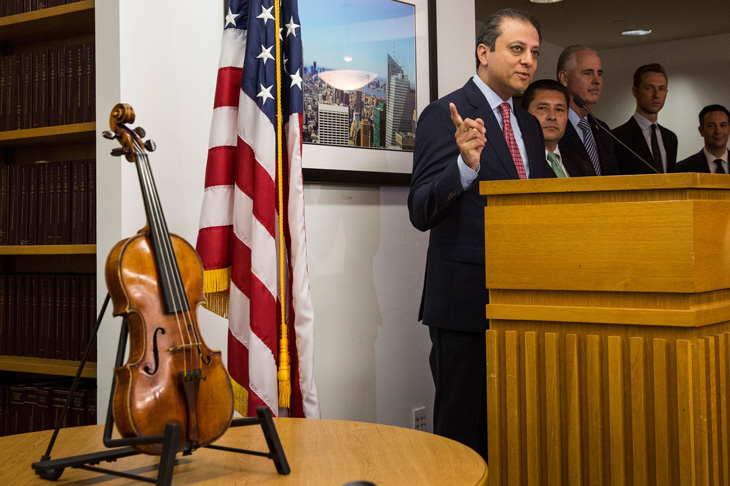Because I’d been reading about Stradivarius on the bus home, my helpful iPhone suggested a related story: the Totenberg Ames Stradivarius, stolen and ‘silent for decades’, was to be played again in concert.
Idly, on the hot top deck of the 38, I read on. Roman Totenberg, the celebrated Polish-American violinist, was 70 when his beloved Strad was taken back in 1980. He’d spent the evening playing Mozart at the Longy school of music in Cambridge, Mass, and when he left his dressing room to glad-hand fans, a former student slipped in and sloped off with the fiddle.
The police had their suspicions, but these were the days before CCTV and nothing could be proved — so the Totenberg Ames Strad sank into three decades of obscurity. It wasn’t until the penultimate par that the name of the student was mentioned. No big deal. No one you’ve heard of. Just a once-promising musician called Philip S. Johnson.
There are moments in life when a light shines suddenly backwards on the past. Phil Johnson, the violin thief, was my first love; the first bloke to really unsettle my icy little teenage heart. Quite unknowing, I’d listened to him play the Totenberg Strad for hours on end. Unknowing, I’d played it myself.
We met at the Spoleto music festival in Italy, Phil and I. He was 42 and I was 17 and my mother was horrified. He was standing in an open doorway playing the Sibelius violin concerto when my family, who went to the festival every year, trooped down to hear the midday concert in our crumpled linens, stopped and got to talking. It makes sense now that Phil was playing Sibelius out into the empty mid-morning street. In the flurry of articles written about him after the Strad was found, his Boston Uni peers remember him as the sort of guy who’d never play scales if he thought anyone was listening.









Comments
Join the debate for just £1 a month
Be part of the conversation with other Spectator readers by getting your first three months for £3.
UNLOCK ACCESS Just £1 a monthAlready a subscriber? Log in